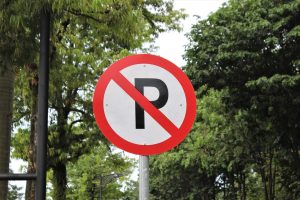Dubai is known for its well-maintained infrastructure and strict traffic regulations. The city enforces a wide array of traffic rules to ensure the safety of its residents and visitors, making violations costly. While traffic fines are common, understanding the reasons behind them and knowing how to manage or avoid them can help drivers navigate Dubai’s roads more responsibly and efficiently.
Common Causes of Traffic Fines:
- Non-payment of Salik Toll: Dubai uses an automated toll system called Salik. Drivers are required to ensure their Salik accounts have sufficient funds. Failure to pay these tolls through the automated Salik system results in fines, which increase if left unpaid for a longer period. Accumulating unpaid tolls increases the fines, making prompt payments necessary.

- Speeding: Speeding remains one of the most frequent violations. The higher the speed above the limit, the greater the fine. School zones and residential areas have stricter speed limits, with violations leading to heavier penalties.

- Driving Without Valid License, Proper Registration, and Insurance: Driving without valid vehicle registration, along with a license or insurance, is a serious violation in the UAE. Vehicle registration is a legal requirement that proves the vehicle is roadworthy and meets safety standards. Operating a vehicle without proper registration can result in severe penalties, including large fines, black points on the driver’s license, and even the impoundment of the vehicle. Without valid registration, drivers may also face legal liabilities in the event of an accident. To avoid these consequences, drivers must ensure that their vehicle registration, along with insurance and license, is always up-to-date and renewed promptly.

- Running Red Lights: Running a red light is a serious traffic violation that can result in substantial fines and black points on the driver’s license, increasing the risk of license suspension or vehicle impoundment.

- Illegal Parking: Parking in unauthorized areas, such as sidewalks or spaces reserved for the disabled, attracts significant fines. Authorities in Dubai are strict in ensuring parking regulations are followed to maintain public order and safety.

- Using a Mobile Phone While Driving: Distracted driving due to mobile phone use without a hands-free system is heavily penalized. In addition to fines, black points are issued to discourage the use of phones while driving.

- Tailgating: Following another vehicle too closely is a hazardous behavior that increases the risk of accidents. Dubai imposes fines and black points for tailgating to deter this unsafe practice.

- Reckless Driving: Engaging in aggressive driving, such as excessive speeding or racing, is classified as reckless behavior. It can lead to large fines, vehicle impoundment, and a substantial number of black

- Failure to Wear a Seatbelt: Both drivers and passengers must wear seatbelts at all times. Non-compliance leads to fines, as this rule is strictly enforced to ensure passenger safety.

- Driving Under the Influence (DUI): Driving Under the Influence or DUI is the act of operating a vehicle while impaired by alcohol, drugs, or other substances that negatively affect a person’s ability to drive safely. When a driver is under the influence, their judgment, reaction time, and coordination are significantly reduced, making them a danger to themselves and others on the road. DUI is one of the most serious offenses, with penalties including large fines, imprisonment, and even deportation for expatriates.

Solutions to Overcome Traffic Fines:
- Timely Payment of Fines: Paying fines promptly is the best way to avoid additional penalties or interest. Dubai Police and the RTA provide convenient options to settle fines through online portals or apps, making it easy to clear fines on time.

- Early Payment Discounts: Dubai offers up to a 50% discount for early payments, making it easier for offenders to reduce the financial impact of their fines.

- Contest Unjust Fines: In cases where fines are issued incorrectly or unfairly, drivers can file a dispute with Dubai Police or the RTA. It is crucial to have documentation and evidence, such as CCTV footage or witnesses, to support the claim.

- Installment Payment Plans: Large fines can be managed through installment payment options offered by Dubai Police, allowing offenders to pay off fines over time without financial strain.

- Driving Courses for Offenders: Attending specialized driving courses, such as those provided by the police for offenders, can reduce black points on a license. These courses also help educate drivers about safe driving practices and how to avoid future fines.

- Use Navigation Apps: Using apps like Google Maps or Waze can help drivers avoid speeding, as these apps provide real-time alerts about speed limits and road conditions. This simple tool can significantly reduce the risk of receiving a speeding fine.

- Maintain Vehicle Documentation: Maintaining valid vehicle documentation, particularly vehicle registration, is essential to avoid fines and legal issues in the UAE. Vehicle registration confirms that the vehicle meets safety standards and is roadworthy. Driving with expired registration can result in hefty fines, black points, and vehicle impoundment. Keeping registration, insurance, and Salik tags updated ensures compliance with legal requirements and helps avoid unnecessary penalties. Regular checks and timely renewals are crucial for smooth and lawful driving.

Dubai’s traffic fines are designed to ensure safety and order on the roads. While the rules are stringent, there are effective ways to tackle and avoid fines. By adhering to traffic regulations, using technology to stay informed, and taking advantage of options such as payment plans and driving courses, drivers can minimize their exposure to fines. Ultimately, a proactive approach to safe driving not only helps avoid penalties but also contributes to safer roads for everyone.
